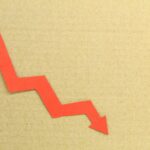We recently finished reading legendary investor and founder of Oaktree Capital, Howard Marks’ latest book, Mastering the Market Cycle. While Marks’ value investment philosophy resonates with the teachings of Warren Buffett and Charlie Munger, the title of his book seems to be perpendicular to value strategies and Marks’ own teachings which discount macroeconomic factors (like cycles).
Value investors are diligently focused on the intensive study of corporate fundamentals, industry dynamics and committed to traditional value metrics that have stood the test of time and multiple cycles. Hence it is interesting that Marks credits a significant portion of his performance over an enormously successful 25-year career, to paying attention to market cycles and benefiting from them.
In the book Marks comprehensively details the nature of cycles, their recurring nature and impact on the economy. Particularly highlighting that it is not essential to be able to predict what will happen tomorrow, next month, or even next year, but to focus on the investment environment and where we are likely to be in the cycle. An interesting anecdote that stayed with us while reading the book was that changes in GDP over time are actually quite small, particularly given a recession may occur if GDP declines by a 1-2% over a period of a couple of quarters, while an economic boom might occur when GDP grows by 3-4%.
Clearly the movement in corporate profits is far greater than the movement in GDP due to the presence of operating and financial leverage. For instance, a business that sells products that have relatively constant demand through the cycle (good and bad times) and is funded without debt, will have more stable profits than a business that sells a highly discretionary product that is funded largely with debt. By extension, a company that is listed on a stock exchange will exhibit swings in price that far exceed swings in earnings, so what accounts for this?
In the book, Marks spends a great deal of time examining investor psychology, which he equates to the swing of a pendulum. Human behavior is inherently emotional and subject to impulses that often cause massive overreactions to given stimuli. This is certainly true in the stock market, with the pendulum rarely at its central point (reflecting fundamentals), rather it fluctuates swinging away from neutral and is totally disconnected from economic and corporate fundamentals.
Perhaps this can be partially explained by the fact that until very recently humans were hunter/gatherers and even though we have gone through a massive cognitive revolution over the past several thousand years our minds are still quite primitive. Evolution occurs and is measured in tens and hundreds of thousands of years, hence the “fight or flight” instinct is still very much part of our natural tendencies.
While we concede this may be a gross simplification, humans still react to economic stimuli much as our ancestors would have reacted to seeing a predator 100 feet away 50,000 years ago. Hence we must train our minds to react intelligently, instead of instinctively to the modern world. In doing so, we can benefit from the mistakes and natural biases of others, rather than join the herd and copy errors. Howard Marks has made an important contribution to our understanding of human psychology and the market cycle, we certainly recommend all investors read his latest contribution to investing and absorb the many lessons contained within his book Mastering the Market Cycle.
 Amit Nath is a Senior Research Analyst with Montaka Global Investments. To learn more about Montaka, please call +612 7202 0100.
Amit Nath is a Senior Research Analyst with Montaka Global Investments. To learn more about Montaka, please call +612 7202 0100.




